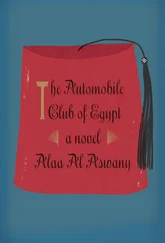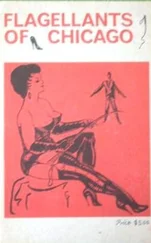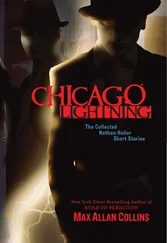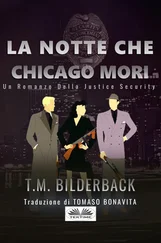He made up his mind and reassured himself, focusing on preparing for the president’s visit. He thought for a long time about the moment of the meeting. What should he do when he saw His Excellency? How would he stand in front of him? What should he say to him? The president shook the hands of all of those standing in line. When it was Danana’s turn, he rushed and hugged the president and kissed him on both cheeks then shouted loudly in a rural accent, “May God give you long life and victory for the sake of Egypt. I am your son, sir, Ahmad Abd al-Hafeez Danana from Shuhada, Minufiya Governorate.”
Thus he chose to present a comic folkloric act to prove his love for his leader and his authentic Egyptianness. The plan worked. The president looked pleased and the pleasure was immediately transferred to the faces of those around him and they began looking at Danana sweetly and affectionately. The president placed his hand on Danana’s shoulder and said, “So, you’re from Minufiya? That means we come from the same place.”
“That’s an honor for me, sir.”
“It seems you are a peasant to the core!” said the president and let out a loud laugh. The camera flashes captured the moment and Danana got the honor of appearing in a presidential snapshot that would be published in government papers with the caption “Our revered president jests with one of his student sons during his successful historic visit to the United States.”
The president crossed the entrance, followed, two respectful steps behind, by the ambassador, then the others in the receiving line in a semicircle to maintain a respectful distance. The large hall was designed in Oriental fashion, its walls decorated with Islamic motifs and inscriptions, while glittering crystal chandeliers hanging from the ceiling provided lighting. The hall was originally meant for lectures and showing movies. Today a stately dais for the distinguished guest was installed, surrounded with bouquets of roses. In the back, a life-size photograph of the president was hung. Under the photograph was a huge sign in Arabic reading:
EGYPTIANS IN AMERICA WELCOME THE REVERED LEADER. WE PLEDGE ALLEGIANCE TO YOU FOR MORE PROSPERITY AND DEMOCRACY.
Everything taking place in the hall was carried by video cameras to a huge screen outside, next to the consulate’s main entrance. Guests sat on the auditorium seats, exchanging small talk and laughter, perhaps to mask their tension. As soon as the president appeared they all jumped to their feet and the whole auditorium was filled with continuous applause. Danana gave an agreed-upon signal to a group of students that he had sat in a section of the auditorium to the right: they started a rhythmic chant accompanied by two successive hand claps, as he had trained them. The din kept getting louder until the president extended his hands and waved them in front of him as if to say “enough, thank you.”
Everything proceeded as planned except for a strange incident that took place moments later. A number of guests rushed forward, asking to have their picture taken with the president. He agreed and signaled to the guards to let them approach. They shook hands with him and stood around him proudly. The presidential photographer got closer, carrying his high-tech cameras. He was a fat, bald man in his fifties (it was ascertained definitively later on that he was a new employee with the presidency and was allowed to travel with the president for the first time after the original photographer fell ill). The president and those around him fixed a photogenic smile on their faces, but moments passed while the photographer fixed his eye on the camera without taking any pictures. Suddenly he extended his hand and said, “Please, Mr. President, move a little to the right.”
A profound silence prevailed, heavily and ominously. The president did not move as the photographer had asked. He remained standing where he was, looking upward, as if watching something moving on the ceiling. That was a well-known sign of his anger: to look upward when something happened that he didn’t like. Those around him had to correct the mistake immediately. It seemed the photographer was not intelligent enough to notice what had happened or he imagined that the president had not heard him. He pushed the camera away from his eyes and said, loudly this time, “Mr. President, you’re outside the frame; please move to the right.” Before he uttered that last word, a hard slap had landed on his face. The chief of protocol grabbed the camera and threw it up in the air, whereupon it fell a distance away, breaking into smithereens and making a loud smashing sound. Then he held the photographer by the shirt collar and roared in anger, “Did you tell our revered president to move, you donkey son of a bitch? The whole of Egypt would move while our revered president remains standing where he is. Get out of here, animal!”
The chief of protocol pushed him hard with his hands in the back and kicked him so violently that the man almost fell on his face. The photographer rushed outside in shock, dazed by the surprise and the abuse, while the chief of protocol kept hurling insults and curses at him. Those who had wanted the picture moved away when the hitting began and then returned to their seats slowly and cautiously, trying to forget the whole thing.
As for the president, he seemed pleased with the punishment that the impudent photographer had received. He looked around slowly and deliberately, as if to reassure everyone that his pride was unaffected. Then he continued walking in the midst of tense silence, which was broken as soon as he arrived at the dais, greeted by another roaring round of applause. The ceremony began with a recitation from the Qur’an by the bearded student Ma’mun, who chose the Chapter of al-Fath: “Surely We have given thee a manifest victory.” After that, there was more shouting of slogans and applause, then, from the podium, the president began to read his speech from the piece of paper in front of him covered in large print (because he never used reading glasses in front of cameras). He spoke of his achievements, which he could not have accomplished without God’s help and the greatness of the true and genuine Egyptian people. Then he concluded the speech by addressing the students, reminding them that each of them was an ambassador for Egypt, which he had to keep in his heart, mind, and soul. The speech was conventional, rhetorical, and boring like all the speeches written for him by Mahmud Kamil, editor in chief of the newspaper Biladi, published by the ruling party. As soon as he was finished, applause and melodic slogan shouting was resumed, led by Danana, whose enthusiasm had reached its peak. He began to wave his hand as the veins in his neck swelled while he shouted at the top of his voice, “Long live the Commander President!”
“Long live the hero of war and peace!”
“Long live the founder of modern Egypt!”
Words of welcome from the ambassador and the consul followed. Then came the resounding words of Ahmad Danana, president of the Egyptian Student Union. “We pledge to you, our revered president, that we will love the fatherland as you have taught us; to follow your example, Mr. President, to work as wholeheartedly as you have, to be graced with integrity and honesty as you have been graced. May God preserve you as Egypt’s treasure and for her might.”
Shouting and applause were resumed, then the ambassador began to introduce speakers according to a schedule. All the comments had been prepared ahead of time and screened very carefully, and they all constituted various forms of praise of the president. Even the questions tended to glorify him rather than demand an answer. One person asked, “How were you so able, sir, to overcome all the major challenges facing Egypt?” Another asked, “How did you benefit, sir, from your military experience in running the affairs of the state so successfully?” During his answers the president repeated the usual words that those present had read dozens of times in the newspapers. From time to time he would tell a joke at which they laughed with great alacrity. Danana, of course, laughed the loudest (he would start laughing after everybody had stopped, to gain the president’s attention). Finally, the ambassador said in his dignified voice: “Now, a word from Dr. Muhammad Salah, professor of medicine at the University of Illinois.”
Читать дальше
Конец ознакомительного отрывка
Купить книгу












